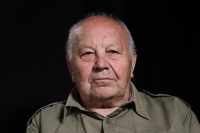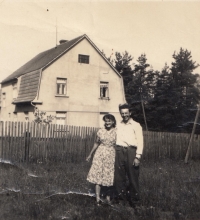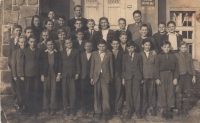The Ralsko forester would accompany generals for hunts and he would stalk the Soviet poachers

Download image
Jaroslav Hrňa comes from the Uherské Hradiště area. He was born on the 27th of February in 1934 in Bojkovice. His father was a forester and eventually, the family settled in the Brhlenka forester’s lodge. Towards the end of WWII, a band of armed men arrived to the lodge, they were either resistance fighters or bandits and they shot Jaroslav’s parents dead and looted the lodge. The witness and his three brothers were thus orphaned and they witnessed the end of the war and the liberation from Nazis in the Vizovice orphanage. The murder of their parents was never investigated. In the late 1940’s and early 50’s, Jaroslav went to a secondary forestry school in Hejnice, he wanted to follow in the tracks of his father and become a forrester. After finishing the school, he was sent to Jizerské hory but he did not like it there so he arranged a transfer to the newly founded military forest in the Mimoň area. From 1954 till 1956, he served in the army, among others, he was involved in building fortifications of the bunkers at the borders with West Germany. After he finished his army service, he returned to work and in the moribund village of Jezová, he met his future wife Růžena whom he married in 1960. Mr. and Mrs. Hrňa soon found their new home in Ploužnice, where they started a family; they had a daughter, Soňa and a son, Jaroslav. Jaroslav Sr., as a local forester, accompanied high-ranking generals for hunts (among them Ludvík Svoboda, Václav Prchlík, Vladimír Janek, Martin Dzúr, even the Soviet Marshal Grechko), he became friends with Václav Prchlík. After the Vysočany Meeting of the Communist Party of Czechoslovakia that took place in 1968, he hid his superior, Ladislav Zdeněk, in his house, after he lost favour with the régime. The presence of the Soviet army complicated Jaroslav’s forest work because the tank manœuvres often would not follow the schedules, the tanks and armed vehicles damaged the forests, and both low-ranking soldiers and the officers would often go poaching. Jaroslav however kept amicable relationship with the Soviets, he remembers them not as enemies but as people whom he used to meet on daily basis. According to the witness, after the occupation army left in 1991, the army forests were in many cases in better state than many state-managed forests. In the new, free times, visitors from the Wests would often visit for hunting. Jaroslav worked as a forester until 1999 and what worried him more those days were not the army but messy tourists. In 2021, Jaroslav and his wife still lived in Ploužnice.



